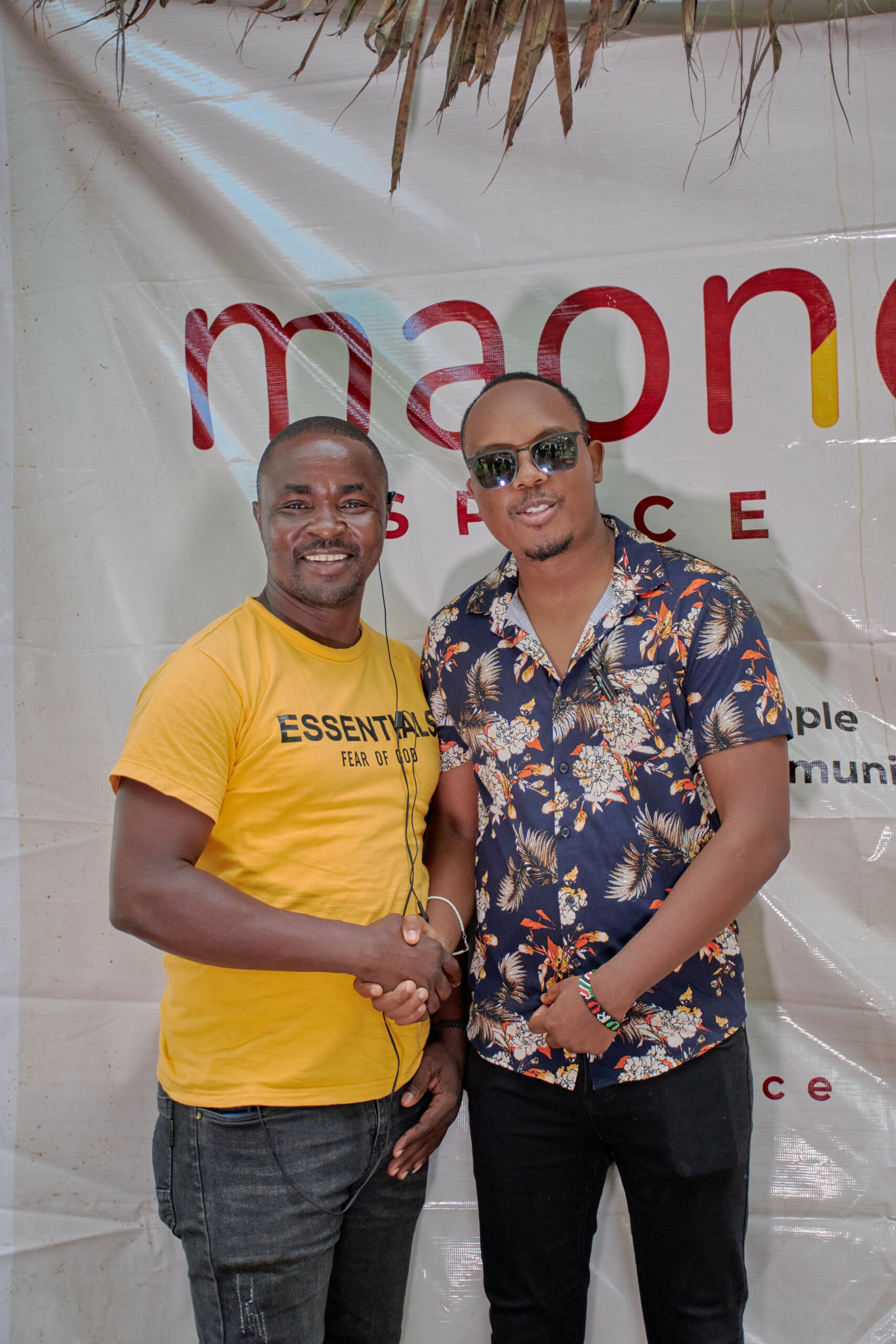
MNATO SATO – EDITION 4 (WITH ABEL MUTUA)
This blog post is co written with Maono Space.
Community based artists play an important role in shaping the culture of a community. These creative thinkers not only offer their communities entertainment, but they also educate and inspire new perspectives for social change. For example, they could be sensitising a community about the benefits of using mosquito nets, or giving thoughtful critique to political, economic and social systems. However, when big conversations happen about the creative sector, community creatives are often left out.
Oliver Kagwe, the CEO of Thellesi Trust, comments that when one says “creative sector,” it mainly reflects urban creatives, while rural people are still largely underrepresented. Urban creatives are reachable and have better access to resources and networks that keep them visible. They meet and collaborate more, and have better avenues to increase their knowledge and build their capacities. On the other hand, findings from a small landscape survey that we did showed that community creatives are quite the opposite. They meet infrequently, collaborate less and have fewer avenues to up-skill themselves. This invisibility means that oftentimes, their voices are not heard, and what their counterparts in cities say is what goes. In addition, we don’t get to see the full diversity of the country’s creative sector, as it is defined by a privileged few.
“THE ‘CREATIVE SECTOR’ AS IT IS DESCRIBED MAINLY FEATURES URBAN CREATIVES. RURAL CREATIVES ARE STILL LEFT BEHIND.“
— Oliver kagwe, ceo, thellesi trust
Theatre Arts in Malindi.
When we met Thespians in March, we wanted to understand how they operate, including the challenges they experience and opportunities they could explore. We made 3 key observations:
- All the youths we met were members of Community based organisations who do magnet theatre. For these organisations to sustain their activities, they depend upon funding by bigger NGOs. Say for example NGO X seeks to promote the use of mosquito nets to prevent Malaria, they will work with CBO Y that does magnet theatre to run the outreach activities for a defined period. When the grant is over, the CBOs take a pause, until the next NGO funded project comes.
- Outside their CBOs, individual thespians don’t meet or work together. In fact, the meetups organised by Thellesi Trust and Maono are the first they had ever had. Additionally, many of them were meeting each other for the first time in the first ever meetup despite being in the same industry in a relatively small town.
- They also highlighted the lack of a space for them to perform. The few spaces that are available are too costly to hire.
Thellesi has a program called Kibaraza that supports rural creatives to come together, collaborate and increase their capacity to create better. Maono provides community based change makers and creatives a space where they come together, collaborate on projects, access the internet and do their meetings. Together, we designed Mnato Sato.
Mnato Sato.
The idea is simple: every third or fourth Saturday of the month, we will stage a play at Maono, in front of a live audience. The show is free for all, and everyone involved would be volunteering. The goal of Mnato Saturday is to bring back performing arts in Kilifi. In addition, we hope that it grows talents and skills through knowledge-sharing and capacity building, keeps the young people busy and potentially becomes a source of income for them. It gives rural creatives a chance to showcase their talent and expose themselves to opportunities.
We have now done 4 editions of Mnato Sato, each one of them getting bigger and better. From staging just one play and a comedy, Mnato now includes 3 comedies, solo and choral verses, and performances by musicians and dancers. Edition 4 was the biggest yet, with about 270 people attending. “I knew we would get a huge audience, but this has surpassed my expectations,” said Chris, the Manager of Maono, adding that “I was worried that the seats would not be enough.”
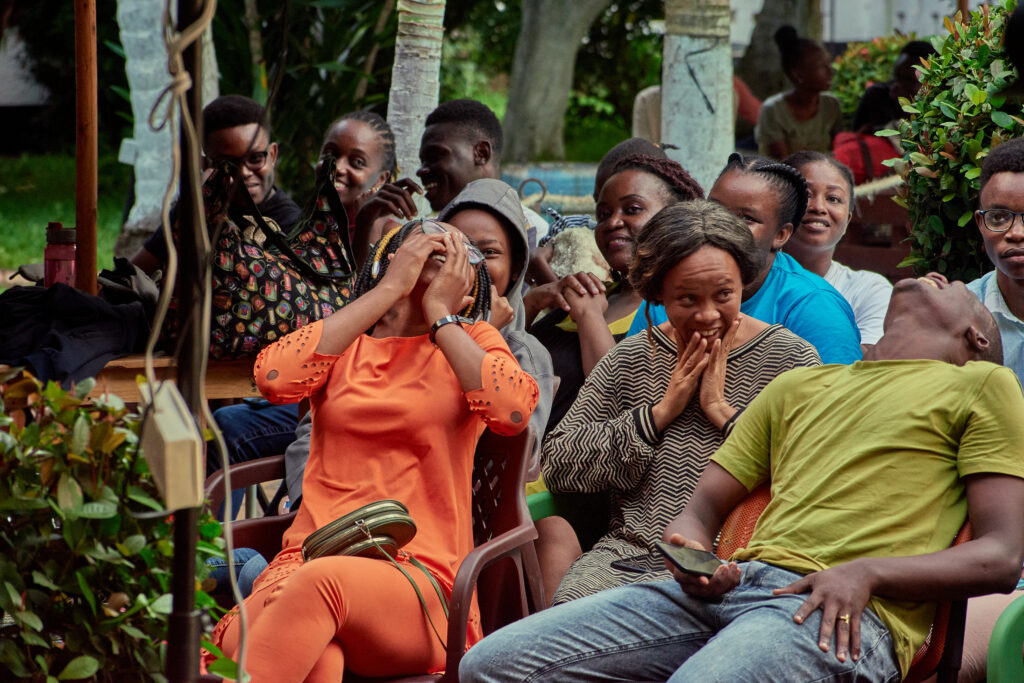
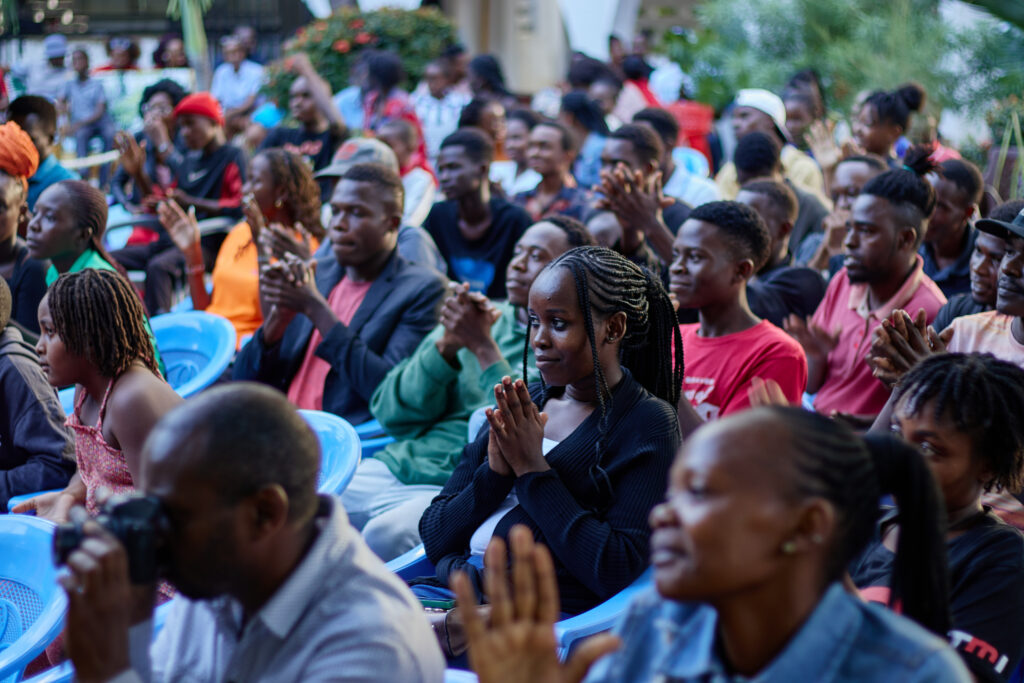
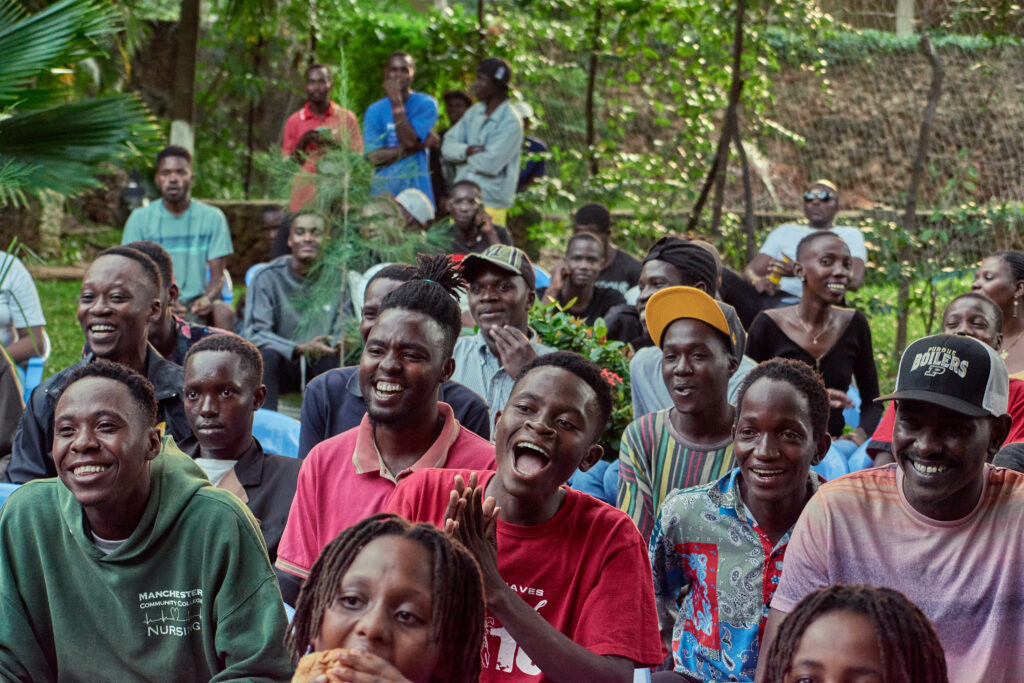
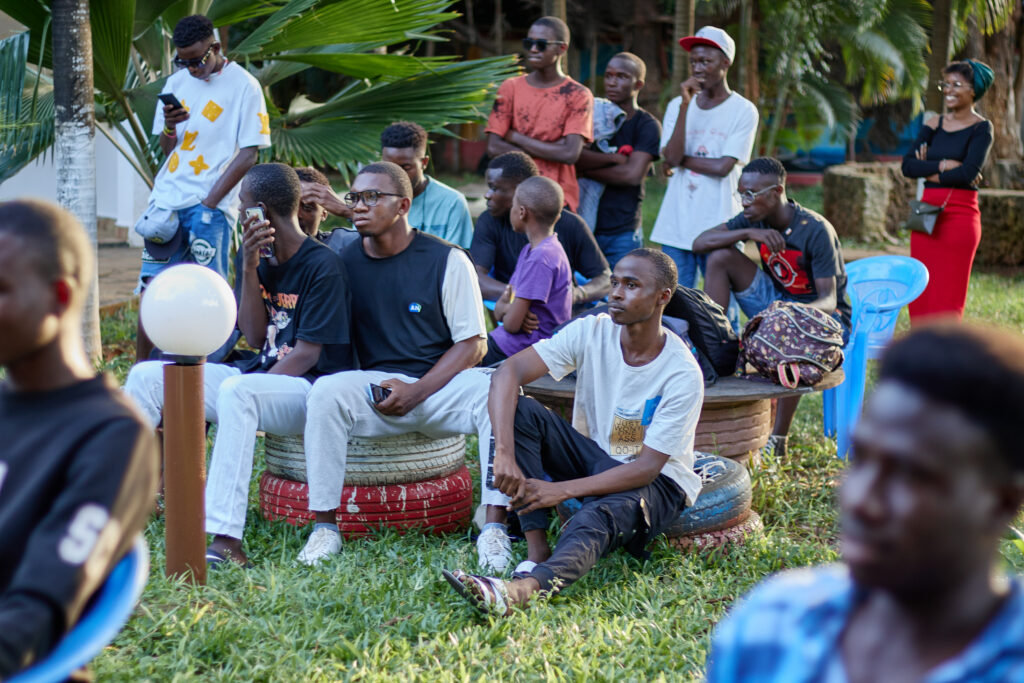
Thellesi had also organised a surprise guest, Abel Mutua who was accompanied by his spouse, Judy Nyawira. Abel is a popular screenwriter and storyteller, and is the brains behind some of Kenya’s most beloved shows and films. With a background in drama, we invited him to experience Mnato Sato, and to meet the thespians for a meet and chat the following day. His presence motivated performers and signalled the play’s significance, encouraging a larger audience for future shows.
“I KNEW WE WOULD GET A HUGE AUDIENCE, BUT THIS HAS SURPASSED MY EXPECTATIONS!.”
— Chris kariuki the manager of maono
In the workshop that was exclusively for actors, actresses, scriptwriters and filmmakers, Abel shared his story, especially his beginnings and his struggles. He intimated to the group some of his lowest moments and how he got out of them. He wanted them to see that the path to a breakthrough is not a linear line of wins. It involves painful days with huge lessons that bring joyful moments. He also shared with them some industry best practises that they could employ.
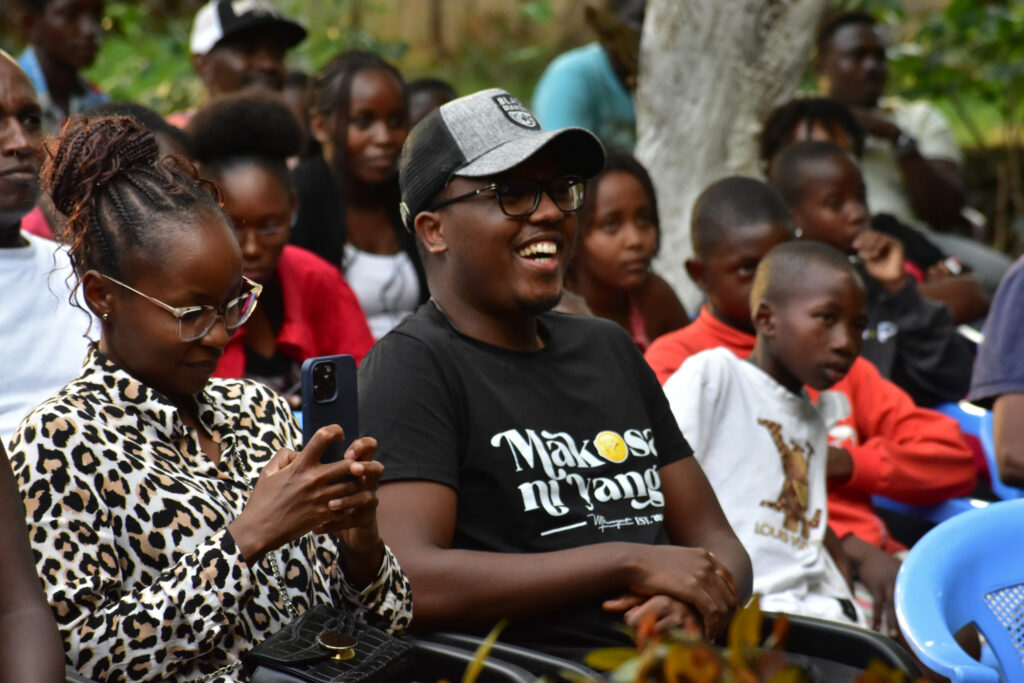
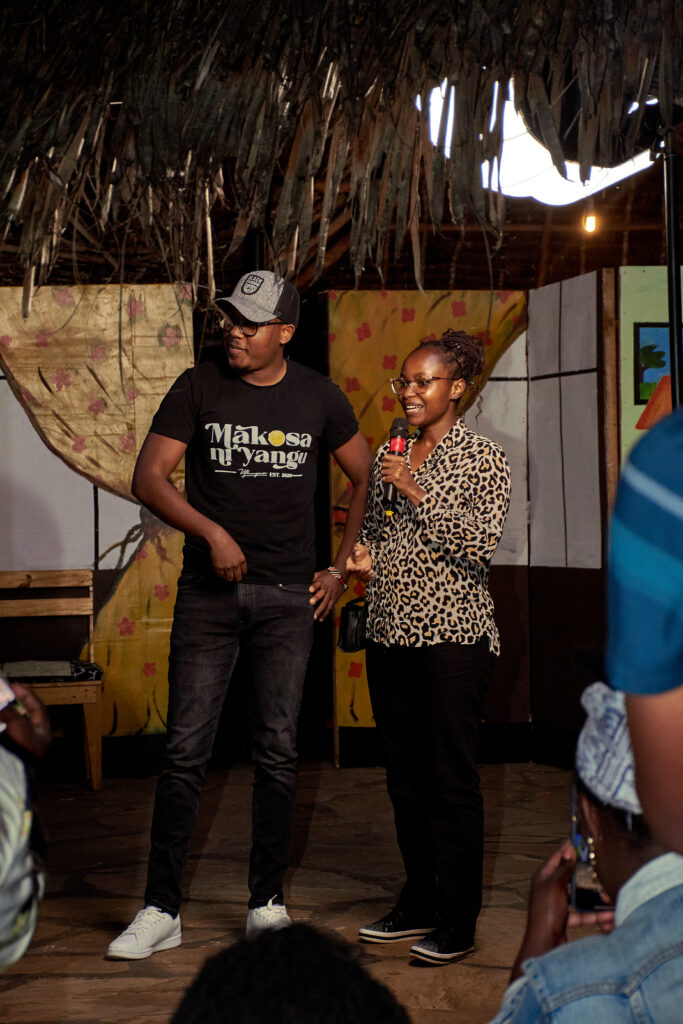
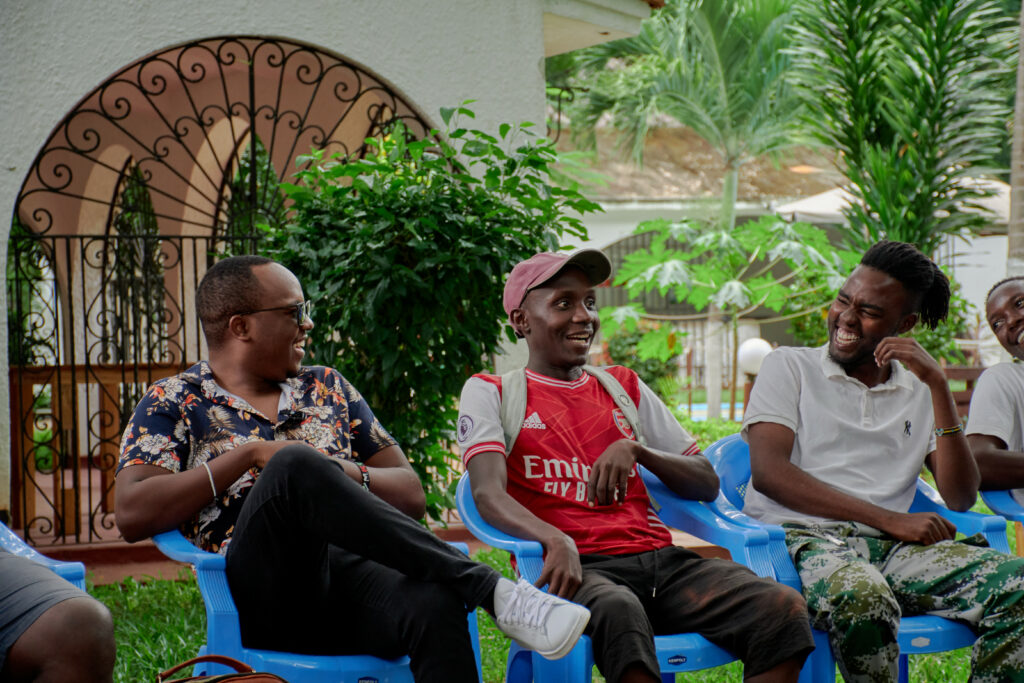
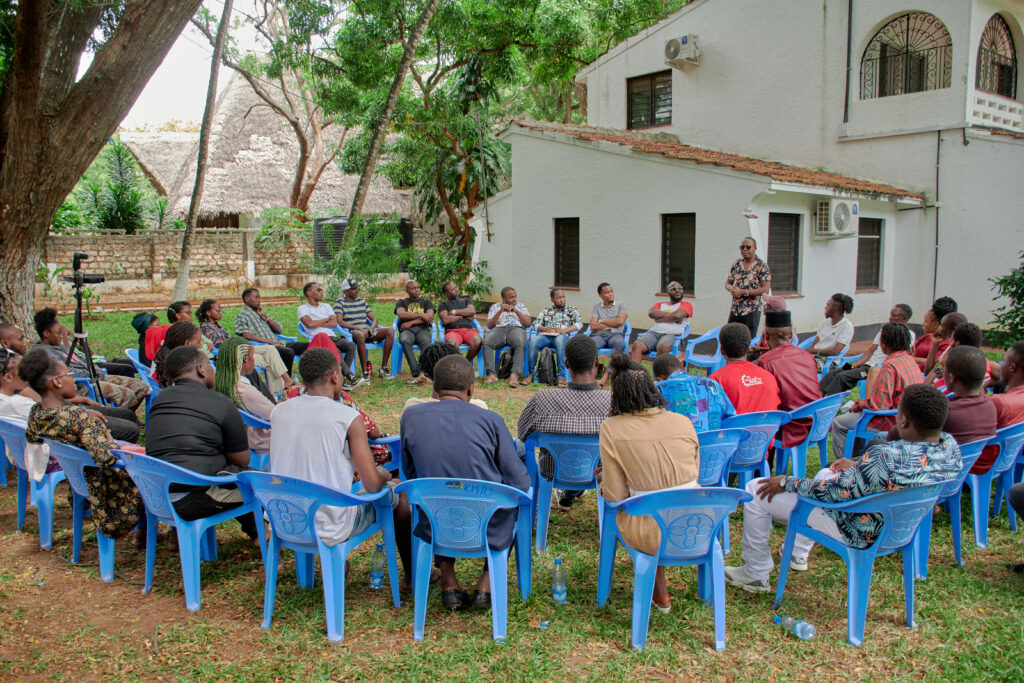
It gives us much joy to see the collaborations we had dreamed of coming to being. Not only within the thespians, but also when people offer to be MCs, donate public address systems and seats and when local photographers volunteer to cover the show. Building a community takes time, but eventually it works!
We appreciate the audience, the creatives and everyone who has continued to make Mnato Sato a success. We are committed to exploring ways that we can make Mnato better. We are also starting to see how we can rope in businesses in Malindi town to support either by donating money or equipment that can be used to enhance the experience of the show. We also welcome you to support us in any way that you can.
Thellesi’s Kibaraza program is supported by Baraza Media Lab.
By the way, you can watch the plays on Youtube by clicking this link.
